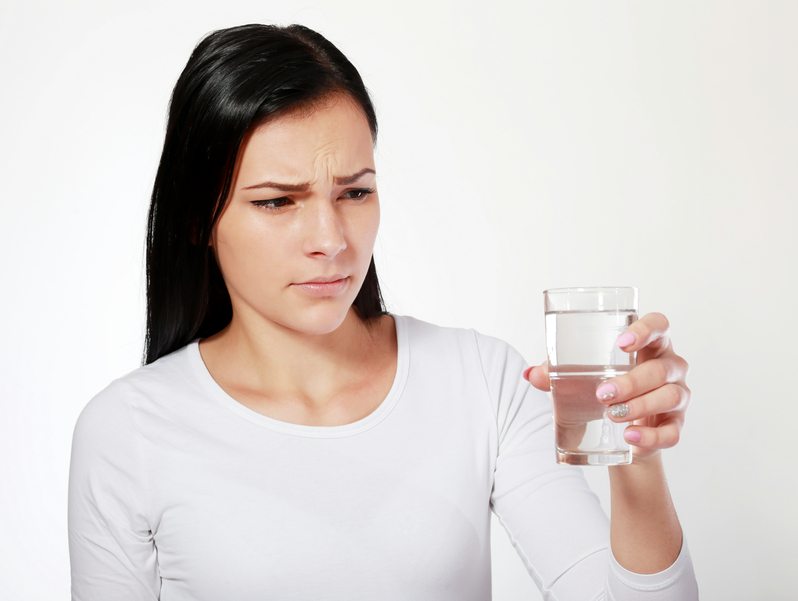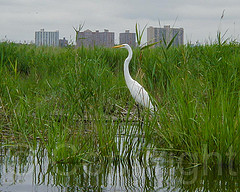One of the unique things about buying or renting a home is that it comes with all the large installed appliances left by the previous resident. Homes usually come with a fridge, stove, HVAC, water heater, and sometimes even washer/dryer. But what’s that large appliance near the water main or next to your water heater? If your new home seems to have come with a water softening system already installed, congratulations. But don’t assume you’ve got free soft water just yet.
Homes with Water Softeners Pre-Installed
That water softener in the utility closet means two things for new homeowners who may be surprised or unsure how to react to this extra appliance. First, it means that your city or well provides considerably hard water. Hard enough that a previous resident thought it was necessary to soften the water for the whole house.
Second, it means you have an appliance of indeterminate age and functionality. It may or may not be working correctly; it may or may not have been serviced recently. But if it’s there, then water softening is probably necessary to fully enjoy your home. So your next task, naturally, is to figure out whether or not that old water softener is still good.
Signs the Water Softener is Working
Water from the Taps Feels Soft or Slippery to the Touch
Let the tap water run for a few seconds to clear the pipes, then wet your hand under the water. Feel the water between your fingers, then pull your hand away and let the water dry for a few seconds. If the water feels soft to you, or even a little slippery to the touch as it dries, this is more likely to be actively softened water.

It is often easier for people who grew up with hard water to know soft water when they feel it.
There Are No White Spots on Glasses From the Dishwasher
Place a clear drinking glass in the top tray of your dishwasher and run it without rinse aid. Use the heat-dry setting and check your glass when the dishwasher beeps. If the water is completely dry and the glass is completely free of white spots, your water softener is likely to be working.
Your Tap Water Tests a Home Hard Water Test
There are a few different ways to actively test the hardness of your water at home. Home test kits can cost between $5 and $20 depending on the brand and type of test. You may also be able to ask for a free water hardness test strip at your local hardware or water care store.
Another way to quick-test the hardness of your water is to fill a water bottle about 1/3 full of tap water. Add a few drops of clear liquid dish soap and shake vigorously. Set the bottle down and take a look. If it is full of frothy, fluffy bubbles up to the top, the water is likely to be soft. If there are very few bubbles, hard water may be suppressing the susding, and your water softener may not be working after all.
The Water Softener Passes a Maintenance Inspection
Whenever there is an appliance you are unsure of in your home, the smart move is to have it inspected. The ultimate way to know if the water softener that came with your home is still working (and working well) is to have it inspected and serviced. If you get the all-clear from your technician, the water softening system is good to go. But it might be too old or un-maintained and need to be replaced.
Signs Your Water Softener Needs Replacing or Service
Water Leaves Your Skin Feeling Dry or Itchy
When you run tap water over your hand, the water is hard if you feel your skin drying out as the water dries or if the drying water makes your skin itch. People who grew up with soft water will have an easier time identifying that there is something wrong and uncomfortable about hard tap water if your water softener is not working.

Your Tap Water Leaves White Chalky Residue on Dishes, Faucets, and Sinks
If the home evidences chalky residue on sinks, bathtubs, faucets, or on dishes that have heat-dried, then your water softener is not working and may need to be replaced.
Tap Water Fails a Home Hard Water Test
If your home water fails a water quality test, or your shaken water bottle produces almost no bubbles, then the hard water meant to be cured by the water softener has returned. Meaning that the softening unit in your home is likely non-functional and will need to be repaired or a new one installed.
If your home came with a water softening unit that has already seen its last days, your best bet is to have a new one installed as soon as you can. The previous homeowners put the softener in for a reason, likely because the regional hard water was making it difficult to enjoy the home. The hard water may have even put the pipes and appliances at risk of damage or constant clogging. A new water softener will allow you to benefit from what was learned by previous residents and not suffer the downsides of extremely hard local water. Contact us today to find out the right kind of water softening unit needed for your replacement system.




